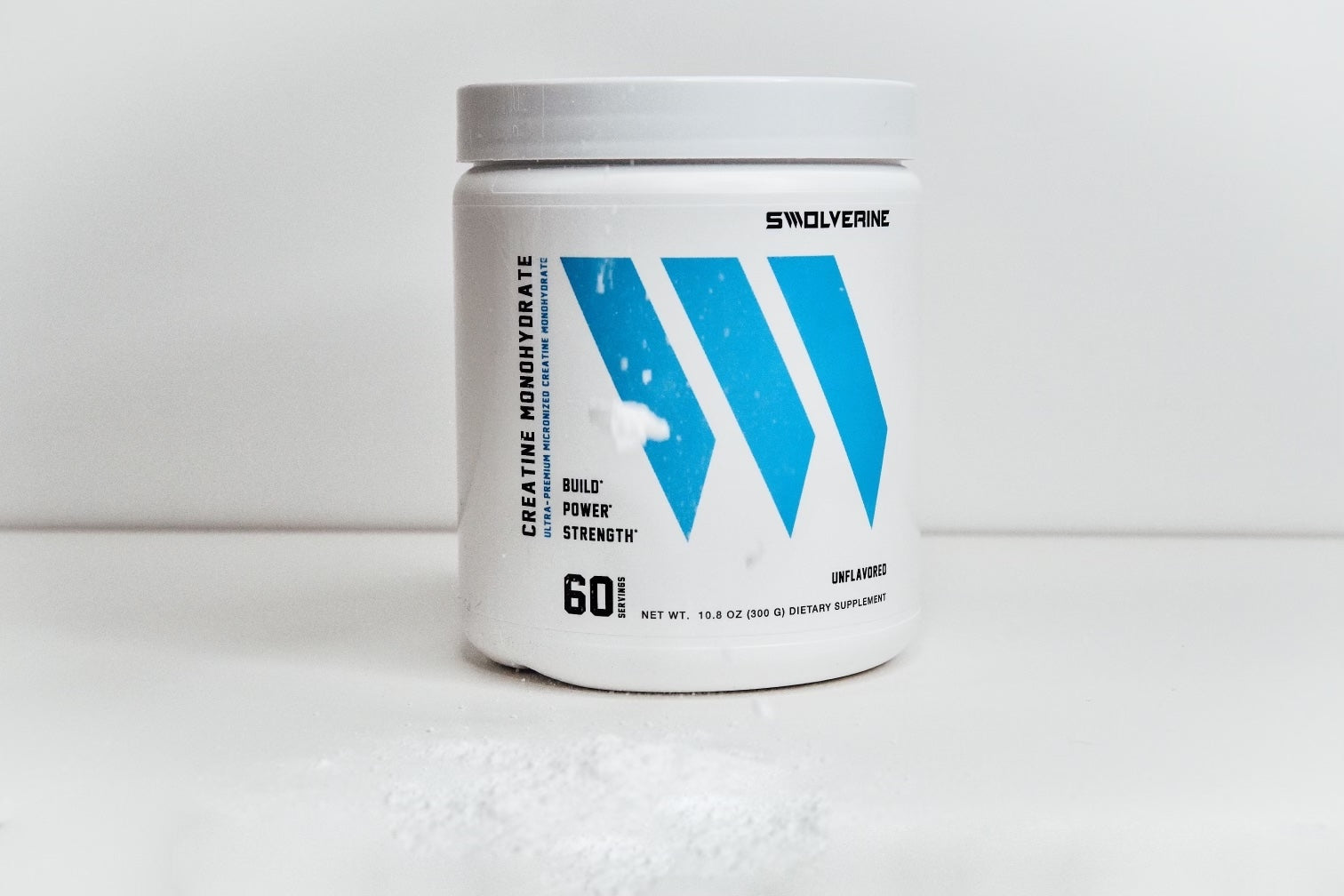In the realm of sports supplements, the debate between Creatine HCl and Monohydrate remains a persistent showdown. Athletes and fitness enthusiasts often find themselves grappling with the question of which one reigns supreme. It’s a clash of the titans – each boasting its own set of benefits and loyal followers. Are you Team Creatine HCl or Team Monohydrate?
In this comprehensive comparison guide, we dive deep into the world of these two powerhouse supplements to unveil the truth behind their effectiveness, absorption rates, and real-world results. Whether you're a seasoned lifter looking to maximize gains or a newcomer navigating the maze of fitness products, understanding the differences between Creatine HCl and Monohydrate is crucial for making an informed choice.
Join us as we dissect the science, debunk the myths, and equip you with the knowledge needed to select the ultimate supplement for your fitness journey. Ready to separate fact from fiction? Let the showdown begin!
Understanding Creatine: HCl vs. Monohydrate
Creatine is a naturally occurring compound found in small amounts in certain foods and synthesized in the human body. It plays a crucial role in energy production, particularly during high-intensity exercise. Among the various forms of creatine available, Creatine Hydrochloride (HCl) and Creatine Monohydrate are the most popular. Understanding the key differences between these two options is essential for athletes and fitness enthusiasts looking to enhance their performance and recovery.
Creatine Monohydrate is the most studied and widely used form of creatine. It has been shown to increase muscle mass, strength, and exercise performance consistently over decades of research (Buford et al., 2007, Journal of the International Society of Sports Nutrition). On the other hand, Creatine HCl is a newer formulation that claims to offer superior solubility and absorption. While both forms serve the same fundamental purpose of boosting creatine levels in muscles, their chemical structures and potential side effects can differ significantly.
The choice between Creatine HCl and Monohydrate often comes down to personal preference and specific fitness goals. Some individuals may prefer the reputed advantages of Creatine HCl, such as reduced water retention and fewer gastrointestinal issues. Conversely, others may rely on the extensive clinical research supporting the efficacy and safety of Creatine Monohydrate. By examining these differences more closely, we can better understand which form may be the best fit for your supplement routine.
Benefits of Creatine Supplementation
The benefits of creatine supplementation are well-documented, making it one of the most researched sports supplements in the world. Creatine is primarily known for its ability to enhance athletic performance, especially in high-intensity, short-duration activities like weightlifting, sprinting, or CrossFit.
By increasing the availability of phosphocreatine in muscle tissue, creatine helps regenerate ATP (adenosine triphosphate)—the primary energy currency of our cells—allowing athletes to train harder and recover faster. This enhanced energy availability translates into improved power output, increased training volume, and overall better performance (Kreider et al., 2017, Journal of the International Society of Sports Nutrition).
Muscle Mass and Hypertrophy
Creatine supplementation contributes significantly to increased muscle mass, especially when combined with resistance training. Studies show that both Creatine HCl and Monohydrate can stimulate muscle protein synthesis, supporting muscle hypertrophy and long-term strength gains. A meta-analysis by Chilibeck et al. (2017, Open Access Journal of Sports Medicine) confirmed that creatine combined with resistance training leads to greater increases in lean body mass compared to training alone (Chilibeck et al., 2017).
Enhanced Recovery and Reduced Muscle Damage
Another notable benefit is enhanced recovery. Creatine has been shown to reduce muscle cell damage, lower inflammation, and decrease delayed onset muscle soreness (DOMS) post-exercise. This helps athletes recover more efficiently between training sessions, which is especially beneficial during periods of high-frequency or high-intensity training (Rawson & Volek, 2003, Journal of Strength and Conditioning Research).
Cognitive and Neurological Benefits
Interestingly, creatine may also offer cognitive benefits, particularly in high-stress environments or in individuals with sleep deprivation. Research has shown that creatine supplementation can improve short-term memory, reaction time, and mental clarity, especially under conditions of cognitive fatigue (McMorris et al., 2007, Psychopharmacology). These benefits make creatine a compelling option not just for physical performance but also for overall mental sharpness and neurological health.
Creatine HCl vs. Creatine Monohydrate: Which Should You Choose?
While Creatine Monohydrate remains the gold standard due to its proven track record, Creatine HCl may be preferred by those with digestive sensitivities or who want to avoid water retention commonly associated with monohydrate. HCl is more water-soluble, allowing for lower doses with similar effects, although more research is needed to match the depth of data available for monohydrate.
In summary:
-
Creatine Monohydrate is ideal for most users, especially beginners, due to its low cost, extensive scientific backing, and proven results.
-
Creatine HCl might be better suited for those seeking faster absorption, less bloating, and greater gastrointestinal comfort.
Ultimately, the best form of creatine depends on your individual tolerance, training goals, and personal preferences.
Related Article
Creatine HCl vs. Monohydrate: What’s the Difference and Which One Is Best?
Choosing the right form of creatine is key to optimizing your strength, performance, and recovery. Among the most popular options are Creatine Hydrochloride (HCl) and Creatine Monohydrate. While both aim to increase your intramuscular creatine levels, their chemical makeup, absorption rates, performance effects, and user experience can vary significantly.
Creatine HCl vs. Monohydrate: Chemical Differences
When comparing Creatine HCl and Creatine Monohydrate, the first key distinction lies in their chemical structures.
Creatine Monohydrate is made of a creatine molecule bound with a water molecule, making it a stable and solid compound. This form is widely studied and known for significantly increasing muscle creatine stores, improving strength and lean body mass (Buford et al., 2007, JISSN).
In contrast, Creatine HCl combines creatine with hydrochloric acid, which results in greater solubility. This form dissolves more easily in water and is believed to be more bioavailable, offering faster absorption and potentially fewer gastrointestinal side effects (Jagim et al., 2012, Journal of the International Society of Sports Nutrition).
These differences may affect how the body processes each form. Creatine Monohydrate, especially in high doses, may lead to bloating or water retention, while Creatine HCl is often preferred for its ease on digestion and lower dose requirement.
Absorption and Bioavailability
Absorption is a critical factor when evaluating supplement effectiveness.
Creatine Monohydrate is well-researched and effective but often requires a loading phase (typically 20g/day for 5–7 days) to saturate muscles. During this phase, some users experience digestive discomfort due to the large amount ingested (Kreider et al., 2017, JISSN).
Creatine HCl, on the other hand, is praised for its higher solubility, allowing for smaller doses (1–2g) without sacrificing benefits. This can mean improved absorption with less water retention and fewer digestive issues.
Although emerging data supports HCl’s bioavailability, long-term and comparative studies are limited compared to monohydrate. Ultimately, personal variability in digestion and absorption means results may differ between individuals.
Performance Comparison: Which Is More Effective?
Creatine Monohydrate continues to be the gold standard for improving:
-
Power and strength output
-
Muscle endurance
-
Post-exercise recovery
Research shows consistent results across sports disciplines, making it a go-to choice for strength athletes, bodybuilders, and high-intensity performers (Cooper et al., 2012, Amino Acids).
Creatine HCl, although newer, has gained traction thanks to user reports of less bloating, no loading phase, and equal performance gains. However, peer-reviewed studies backing these claims remain limited.
Your best bet? Try both and assess based on:
-
Digestive tolerance
-
Dosage preferences
-
Performance results
Side Effects and Safety Concerns
Both creatine forms are generally considered safe for long-term use in healthy individuals. However, like any supplement, side effects may occur.
Creatine Monohydrate Side Effects:
-
Water retention
-
Bloating
-
Cramping or diarrhea (especially during loading phase)
Creatine HCl Side Effects:
-
Less bloating, but may still cause:
-
Mild upset stomach
-
Headaches in rare cases
-
No significant adverse effects have been found in long-term studies of creatine in healthy populations (Poortmans & Francaux, 2000, Medicine & Science in Sports & Exercise). However, individuals with pre-existing kidney conditions should always consult a healthcare provider before use.
Dosage and Usage Recommendations
Creatine Monohydrate
-
Loading phase: 20g/day (split into 4 doses) for 5–7 days
-
Maintenance phase: 3–5g/day
Creatine HCl
-
No loading phase required
-
Effective dose: 1–2g/day
-
Best taken with water or pre-workout beverage
No matter the form, hydration is key. Creatine increases water retention within muscle cells, so ensure adequate water intake to support proper function and performance.
Choosing the Right Creatine for Your Goals
When deciding between Creatine Monohydrate and HCl, consider:
| Goal | Best Option |
|---|---|
| Maximum strength & muscle mass | Creatine Monohydrate |
| Digestive ease & low dose | Creatine HCl |
| No loading phase | Creatine HCl |
| Budget-friendly, proven results | Creatine Monohydrate |
What About Kre-Alkalyn?
An emerging favorite among advanced users is Kre-Alkalyn®—a pH-buffered form of creatine monohydrate. It claims to eliminate creatine breakdown in the stomach, improving bioavailability and reducing side effects like bloating or cramping.
Why Kre-Alkalyn May Be Superior:
-
No loading phase required
-
No conversion to creatinine
-
Smaller doses needed for same effects
-
Minimal GI discomfort
If you're seeking the benefits of creatine without the drawbacks of Monohydrate or HCl, Kre-Alkalyn might be your best bet for performance, efficiency, and cost-effectiveness.
🛒 Recommended Product: Kre-Alkalyn Creatine
Real User Experiences: Testimonials and Reviews
Creatine Monohydrate users frequently report:
-
Noticeable increases in muscle mass
-
Enhanced strength and recovery
-
Some experience mild bloating or cramping
Creatine HCl users often highlight:
-
Better digestion
-
Quick mixing and absorption
-
Fewer side effects, but comparable gains
These anecdotal experiences offer insight, but remember—individual responses vary. Testing both types may be the most reliable way to determine what works best for your body and training regimen.
Related Article
What’s the Best Time to Take Creatine?
So Which One Creatine HCL or Monohydrate: Making the Best Choice
In the ongoing showdown between Creatine HCl and Monohydrate, the choice ultimately comes down to individual goals, preferences, and body responses. Creatine Monohydrate has a well-established track record of effectiveness, supported by extensive research and a broad user base. Its ability to enhance strength, muscle mass, and recovery makes it a solid choice for athletes aiming to improve performance in high-intensity activities.
On the other hand, Creatine HCl offers potential advantages in terms of solubility and ease of use, making it appealing for those seeking a gentler option with fewer side effects. While research is still evolving, many users report satisfactory results with this newer formulation.
Ultimately, it is essential to assess your own fitness objectives, listen to your body, and consider personal preferences when making a decision. Whether you choose Creatine HCl or Monohydrate, the key is to find a supplement that works best for you, aligns with your goals, and enhances your fitness journey.
Find similar articles:
Supplements












